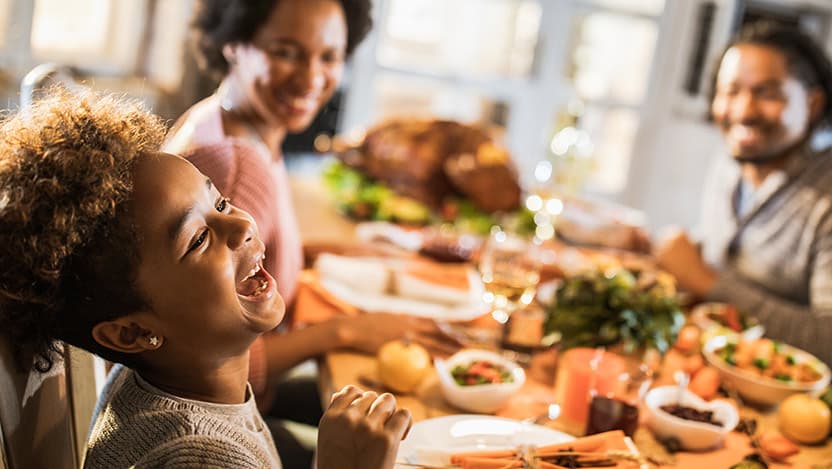Tips to manage celiac disease in children during the holidays

With the holidays come opportunities for cookies, popcorn, bread and other holiday goodies to land on your child’s plate. This can pose quite a problem if your child is living with celiac disease.
Celiac disease is an inherited autoimmune disease that affects the digestive process. When someone who has celiac disease consumes gluten — a protein found in wheat, rye, and barley — the immune system attacks the small intestines, stopping the absorption of important nutrients into the body. Some gluten-intolerance symptoms include diarrhea, constipation, bloating, gas, and less suspect symptoms like chronic headaches, anemia and short stature.
Currently, the only treatment for celiac disease is to remove wheat, rye and barley and eat a gluten-free diet. As the medical director of the University of Chicago Celiac Disease Center, I often help families implement sustainable dietary changes. Here are tips to help keep your child who is living with celiac disease healthy and in the holiday spirit.
Eat before you feast
A gluten-free, pre-holiday meal before the big dinner will make sure that your child is well fed and more likely to avoid triggers.
Ingredient swap
Many of the classic dishes like turkey and vegetables are naturally gluten-free. For the others, making a few easy ingredient swaps using gluten-free products and taking some simple preparation and serving precautions, you can have a delicious traditional meal.
Beware of holiday foods containing gluten
Avoid the following items that are typically found in holiday meals unless they’re labeled as gluten-free or made with corn, rice, soy or other gluten-free grains:
- Bouillons (in broth)
- Breads
- Cakes/pies
- Candy
- Cookies/crackers
- Croutons
- Gravy
- Pasta
- Salad dressing
- Self-basting poultry
While research shows that using the same kitchen utensils to prepare gluten-containing and gluten-free food showed low traces of gluten, you still want to work to avoid any cross contamination. Prepare the gluten-free plates first and be sure to cover dishes to avoid the gluten-free and gluten-containing dishes from commingling.
Hand washing is key
With this condition, hand washing is of the utmost importance, especially while COVID-19 is still a concern. COVID-19 can be transmitted through stool, so it’s extremely critical to practice good hand hygiene when changing a diaper and after going to the bathroom. It’s also just important for children to thoroughly wash their hands. This will help avoid accidentally ingesting any gluten.
Schedule a Pediatric Gastroenterology Appointment

Schedule Online
Book a pediatric appointment online right away from the comfort of your mobile device.

Set Up A Pediatric Video Visit
Save time by skipping the trip to the doctor's office and video conference with your provider instead.

Request an Appointment
Don’t have time right now? Submit an appointment request form and we’ll call you back within two days to schedule an appointment.
